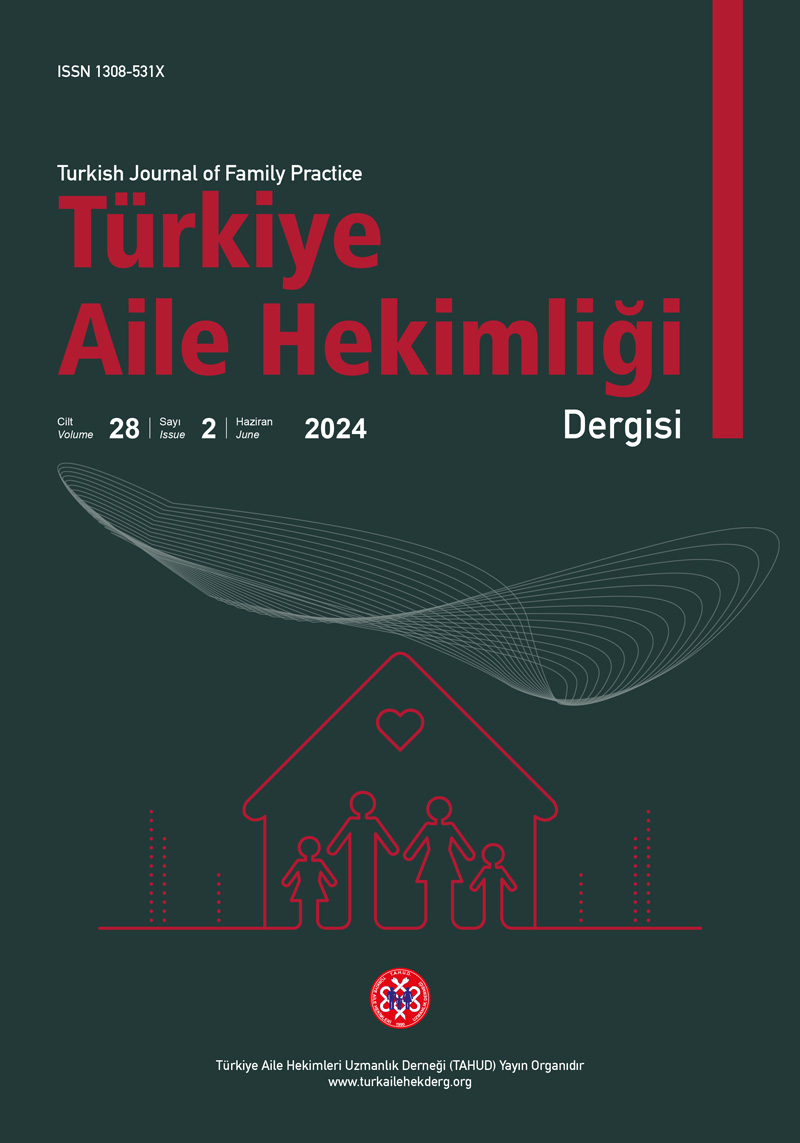Abstract
Objective: The aim of this study was to evaluate the knowledge, attitudes and behaviors of women in the reproductive period about Premenstrual Syndrome.
Methods: This cross-sectional study was conducted with 228 patients who applied to Karabük Training and Research Hospital Family Medicine Outpatient Clinic between 07.12.2023 and 17.12.2023. In the study, men, women who were not in the reproductive period, pregnant women, foreign nationals and those who did not volunteer to participate in the study were excluded from the study. There was no sample selection in the study and all volunteers were included in the study. In the study, a questionnaire consisting of three parts and 35 questions created by literature review was applied face-to-face.
Results: In the study; There was a significant correlation between the presence of chronic disease and dysmenorrhea (p=0.033) and between the presence of chronic disease and regular menstruation (p=0.021). A statistically significant correlation was found between the use of birth control pills and regular menstruation (p=0.019) and between physical complaints and dysmenorrhea during menstruation (p=0.002). With mental complaints experienced during menstruation; A statistically significant correlation was found between dysmenorrhea and regular menstruation (p<0.001, p=0.028, respectively), and between PMS in relatives and dysmenorrhea (p=0.011). When dysmenorrhea and menstrual cycle were evaluated according to sociodemographic data, it was determined that 60.1% of the participants had dysmenorrhea, 77.2% had regular menstruation, 76.3% thought that PMS negatively affected the quality of life, 74.6% found it right to pay attention to nutrition, and 75% thought that physical activity made PMS milder. In the dysmenorrhea and menstrual pattern of individuals; There was no statistically significant difference in terms of educational status (p=0.847; p=0.661, respectively), marital status (p=0.351; p=0.852, respectively), presence of children (p=0.657; p=0.779, respectively), type of delivery in birthing patients (p=0.478; p=0.372, respectively), economic status (p=0.458; p=0.550, respectively), presence of regularly used drugs (p=0.844; p=0.280, respectively), and age of first menstruation (p=0.111; p=0.591, respectively).
Conclusion: In the light of the findings obtained in the study, it was determined that women thought that PMS had physical and psychological negative effects. It is thought that the increase in research on PMS will raise awareness in the approach of family physicians working in primary health care institutions to patients presenting with premenstrual syndrome.
Keywords: Knowledge, Woman, Attitude and Behavior, Premenstrual Syndrome
Copyright and license
Copyright © 2024 The Author(s). This is an open access article distributed under the Creative Commons Attribution License (CC BY), which permits unrestricted use, distribution, and reproduction in any medium or format, provided the original work is properly cited.










